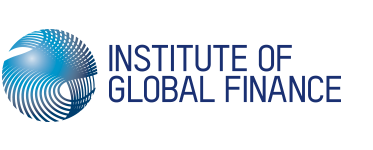Watch the Interview.
Dr Andrea Iffland, the Regional Director of the Asian Development Bank’s (“ADB”) Pacific Liaison and Coordination Office, was interviewed by the Institute of Global Finance’s (“IGF”) Director, Professor Fariborz Moshirian. She provided her insights about the ADB’s operations in the ADB, and reflected on some challenges facing people in Pacific countries. Specifically, she discussed the current engagement of the ADB in the Pacific, how the banking and finance sector in the Pacific is evolving in the Pacific after post Global Financial Crisis, and the status of women in the Pacific.
Dr Iffland commented that the ADB had been working in the Pacific for 40 years now, and its programmes there were increasing in scale. She highlighted that the ADB’s key areas of focus in the Pacific were infrastructure development (in particular, renewable energies) and linking Pacific markets to the Asian markets. 80% of the ADB’s activities in the Pacific region are related to infrastructure development. These include projects about climate proofing investments in the Pacific, infrastructure development projects, and also in helping Pacific countries reduce the price of power generation, as well as embrace renewable energies.
Dr Iffland also discussed the state of the banking and finance sector in the Pacific. She commented that the sector is dominated by two Australian banks (Westpac and ANZ). As a result of the Global Financial Crisis, there has been a crunch on lending. She also commented that there is a need to development different modalities of banking and financial services given the particular situation of Pacific countries. This involves initiatives exploring mobile banking and branchless banking.
Overall, Dr Iffland highlighted that there remains much to be done. At the moment, progress has been made towards inclusion of rural population in access to banking and financial services. But there needs to be continued broadening and deepening of the financial system. There also needs to be development of the insurance sector. Currently, the ADB are focussing on micro-insurance, and packaging these with lending products to get the idea of insurance to the population.
Finally, Dr Iffland discussed the contemporary status of women in the Pacific. The major challenge remains social attitudes towards women. In relation to education, while the picture for primary education of girls is positive, enhancing female participation in secondary education is more challenging because families do not see the need to educate their daughters beyond primary education. Also, there is minimal female participation in tertiary education. In relation to employment, there is an unequal playing field. Women receive lower pay, and have less opportunity. The ADB is working on trying to empower women, especially in the employment sector. One initiative has been helping women with micro-enterprise and setting up their own business.
